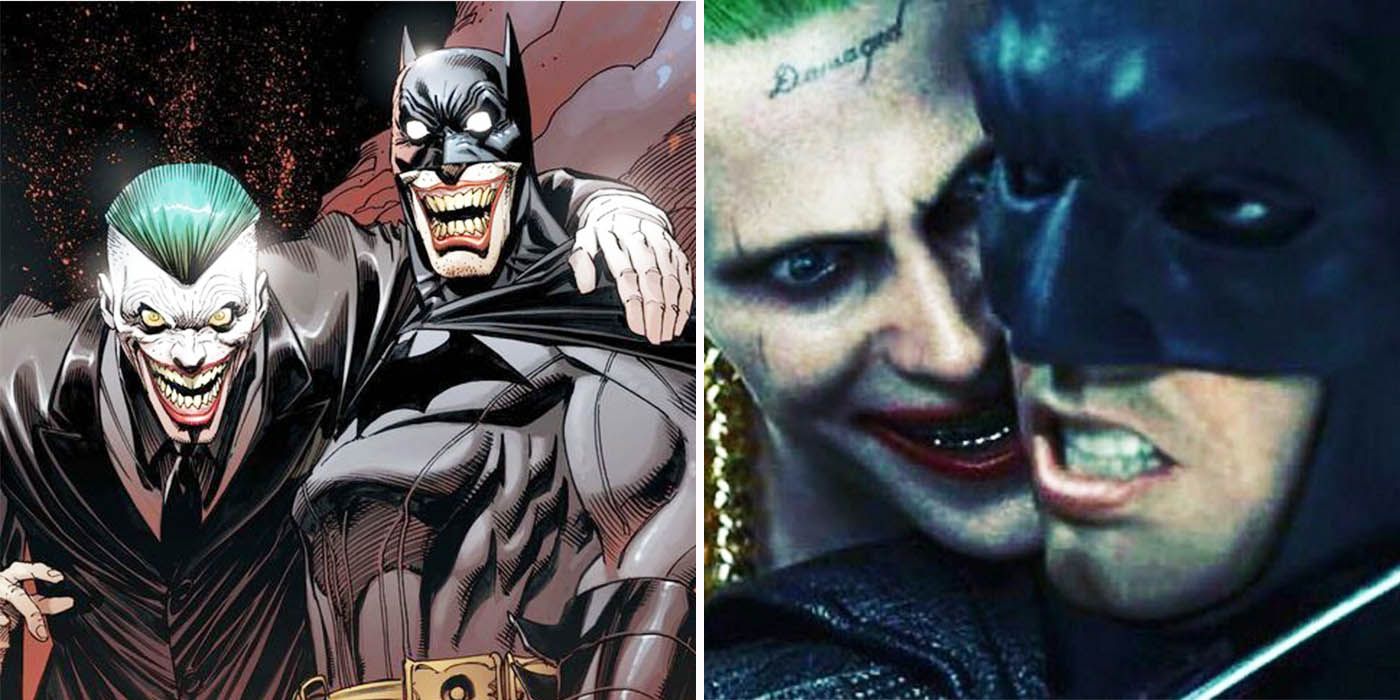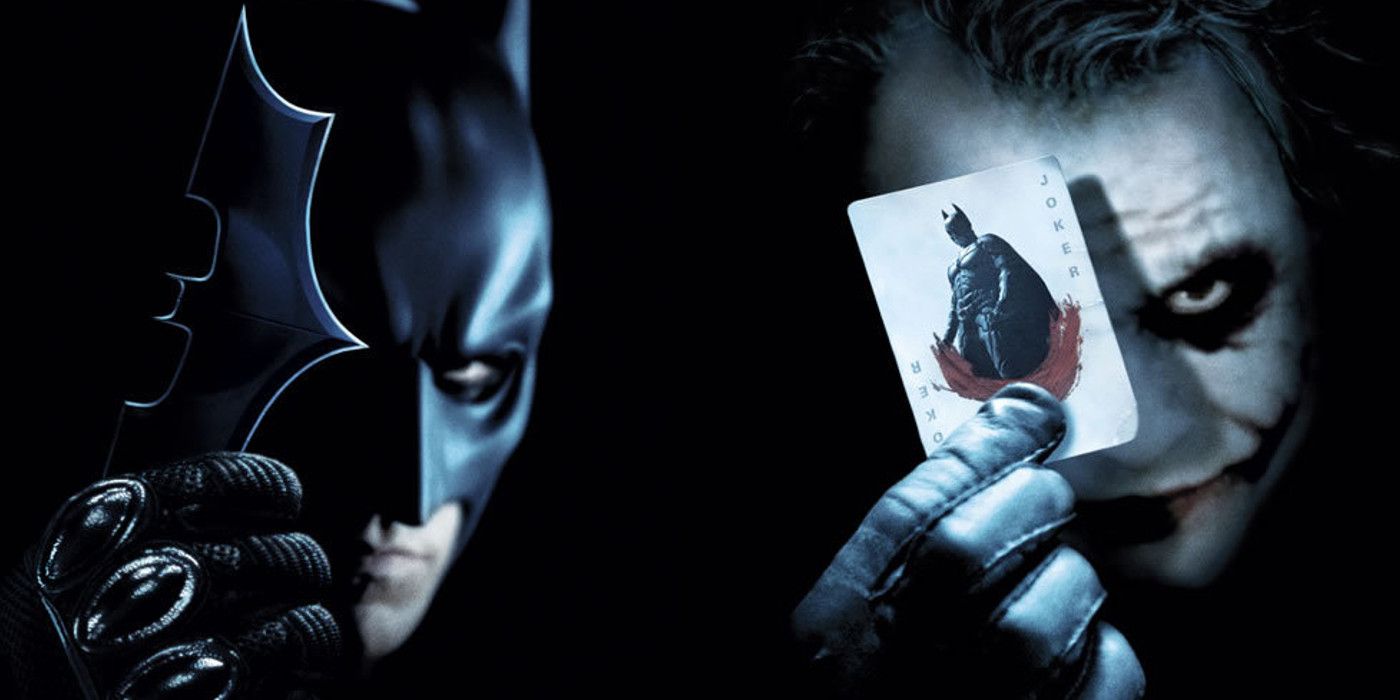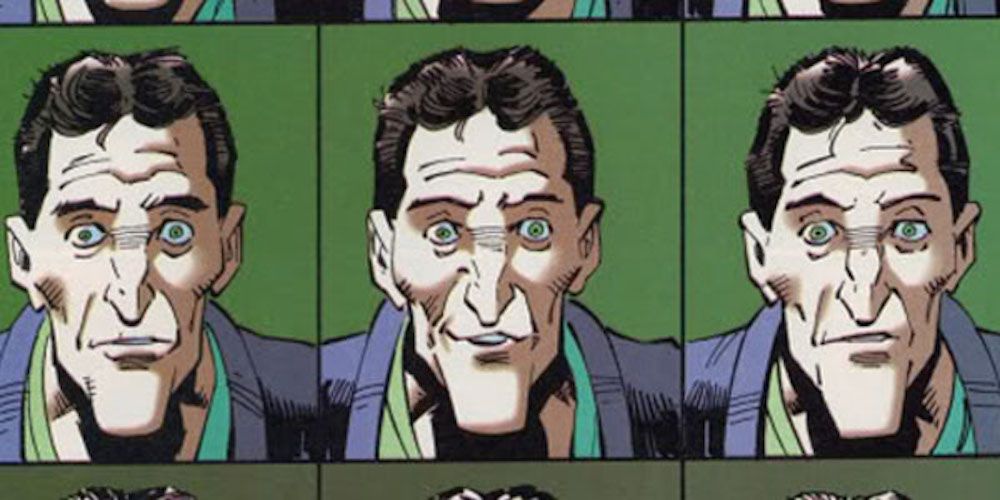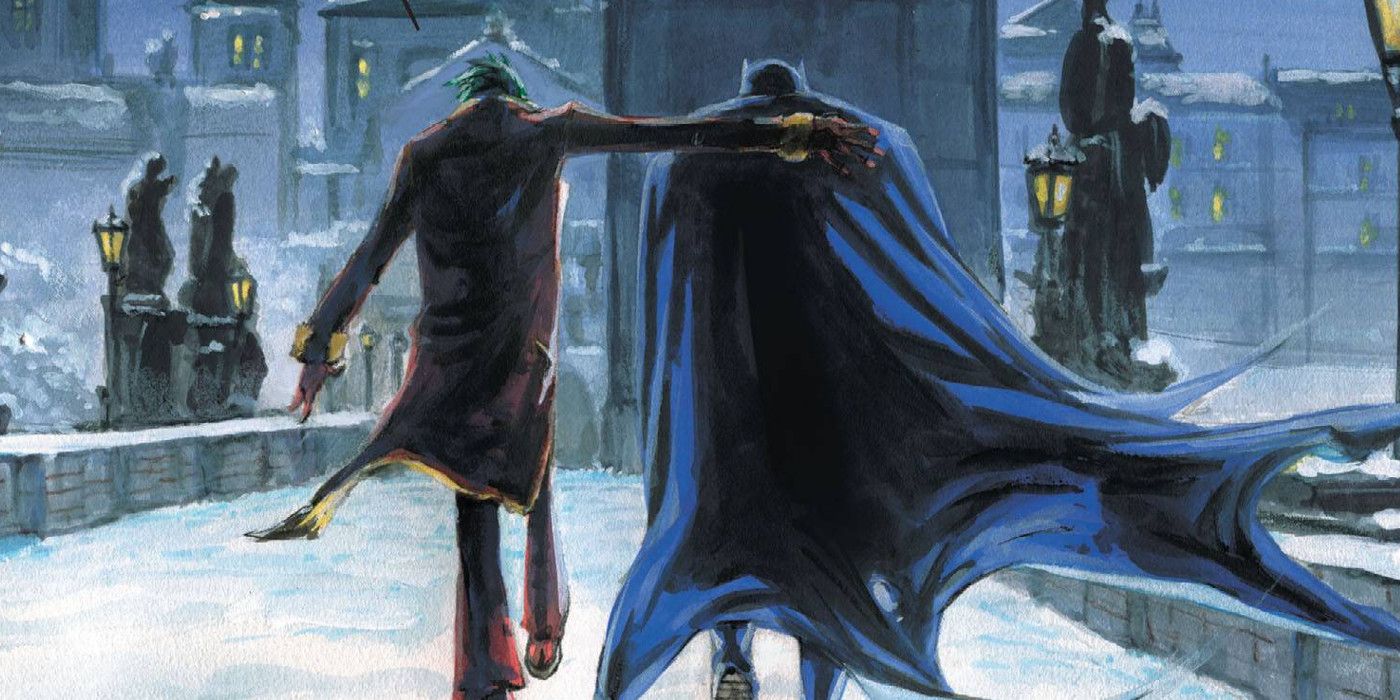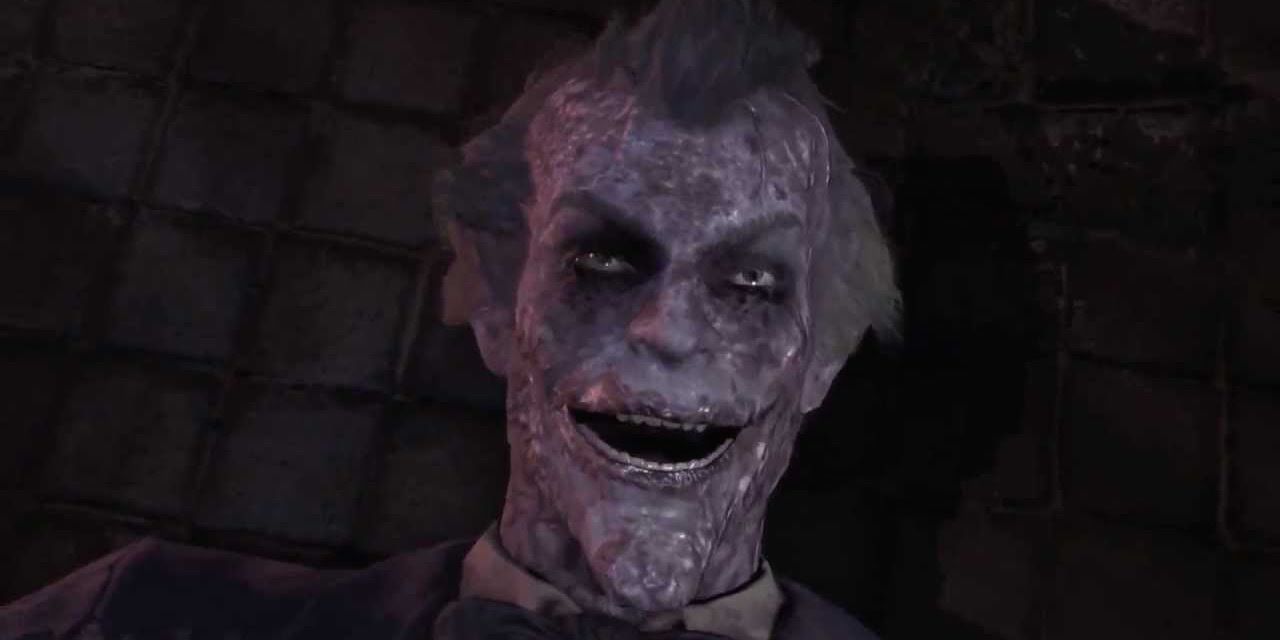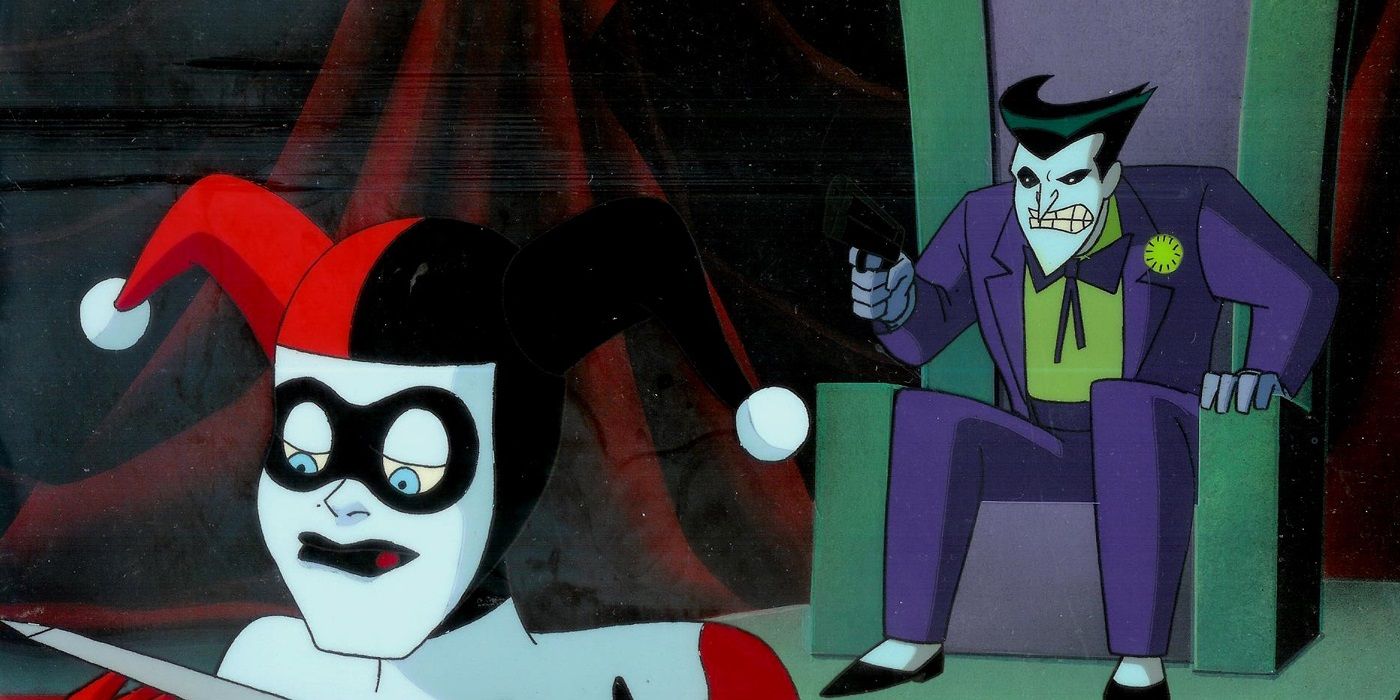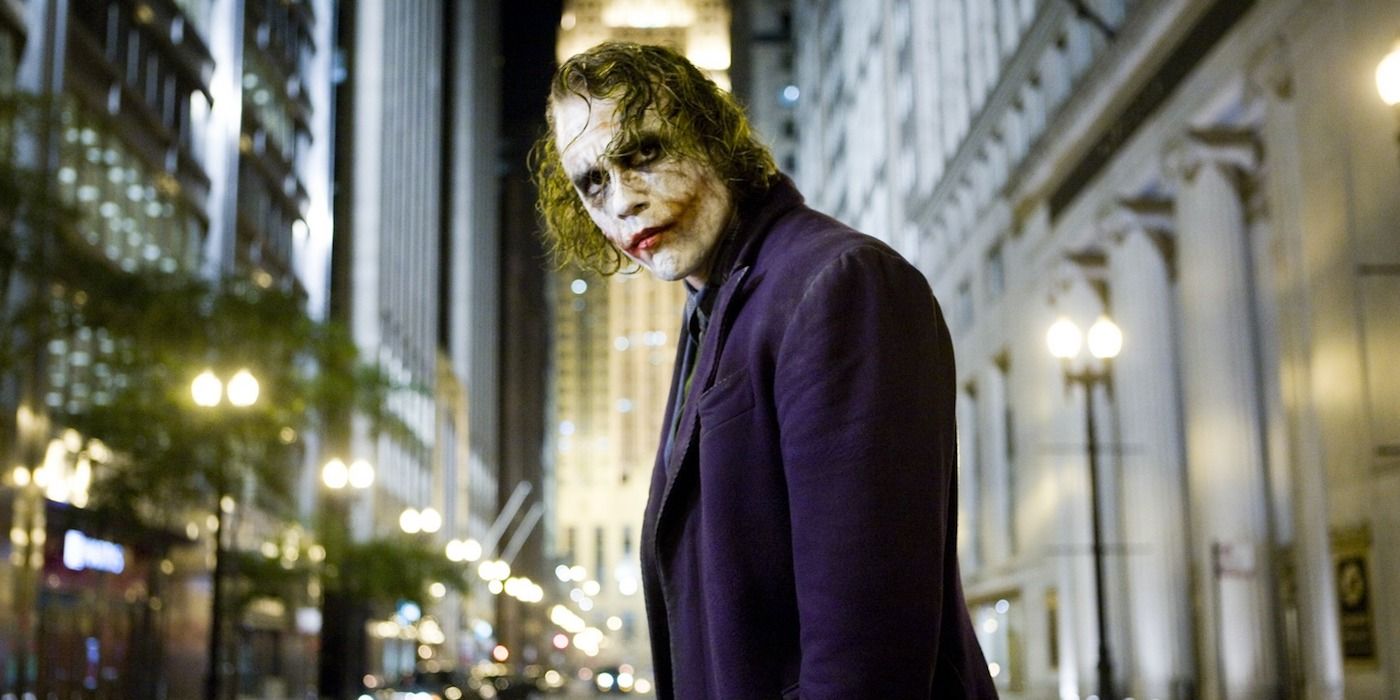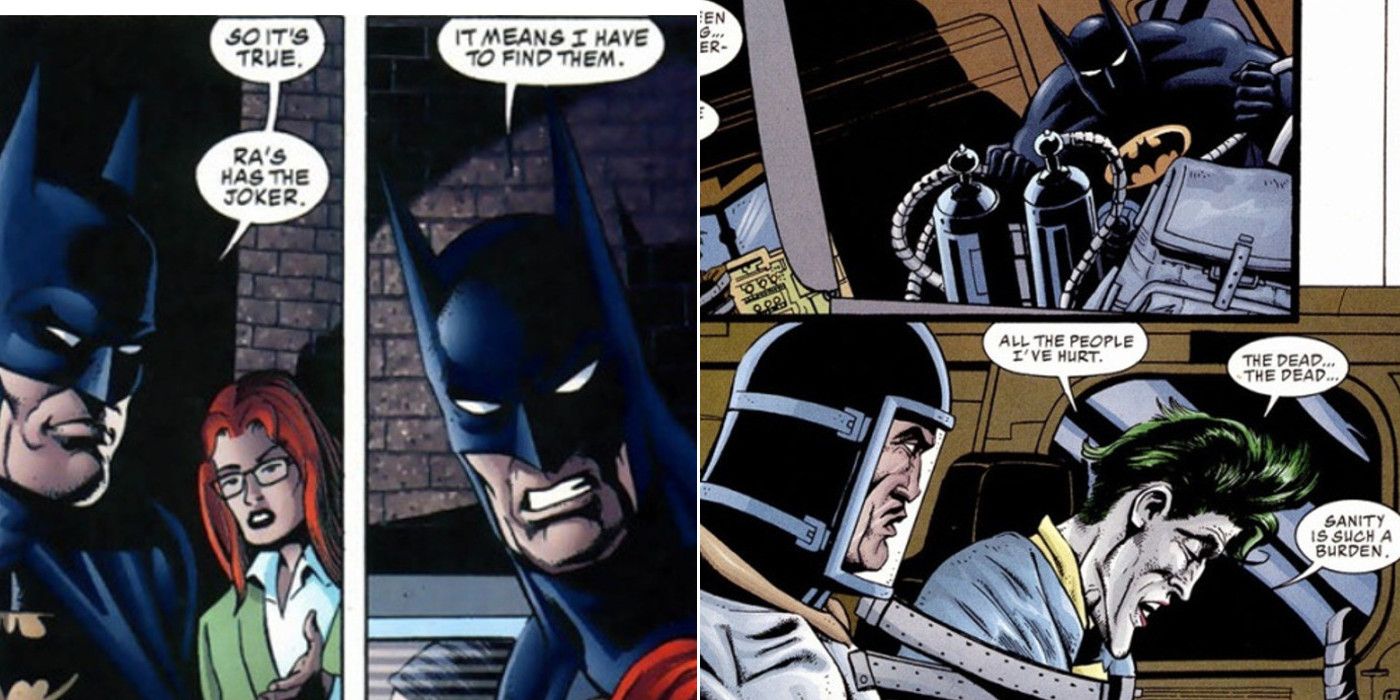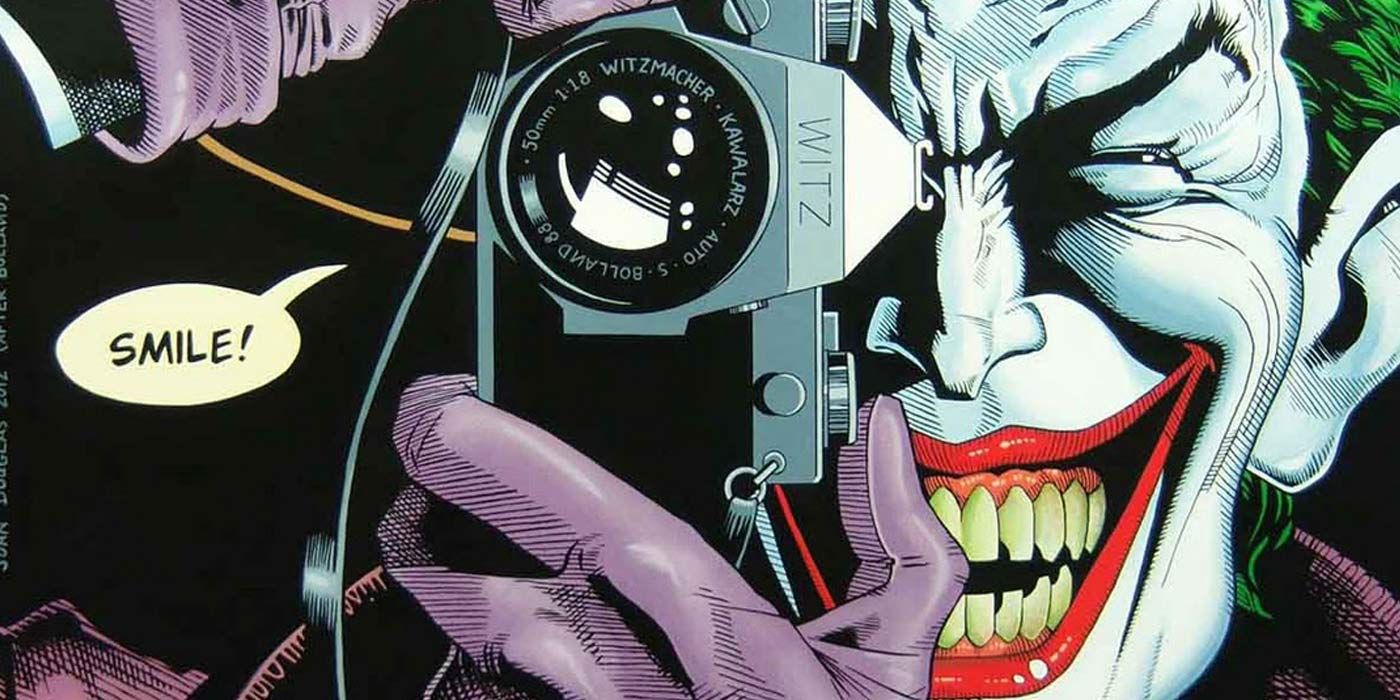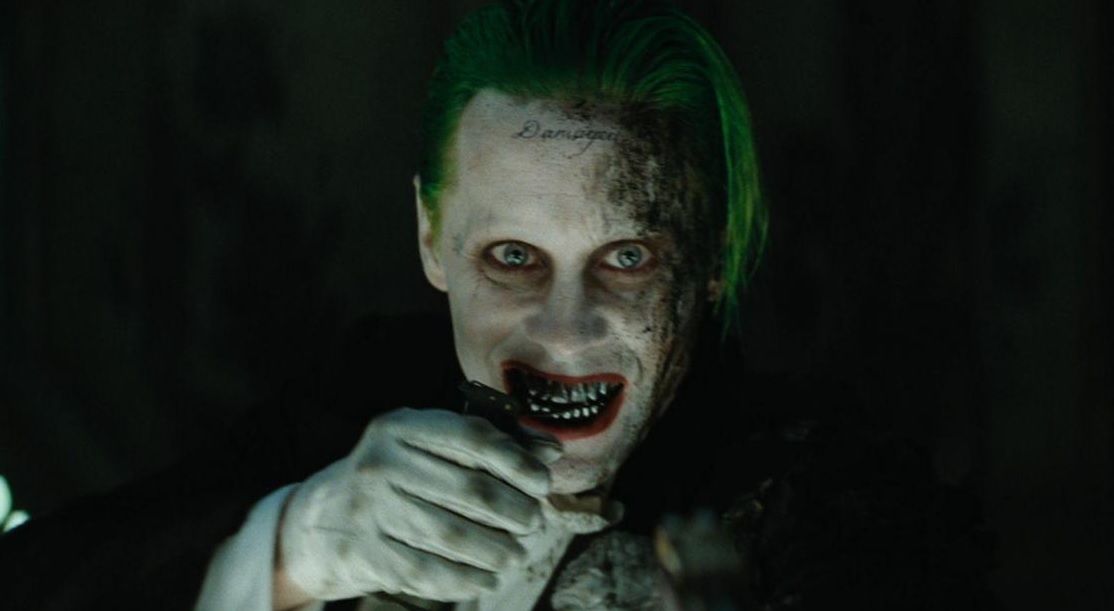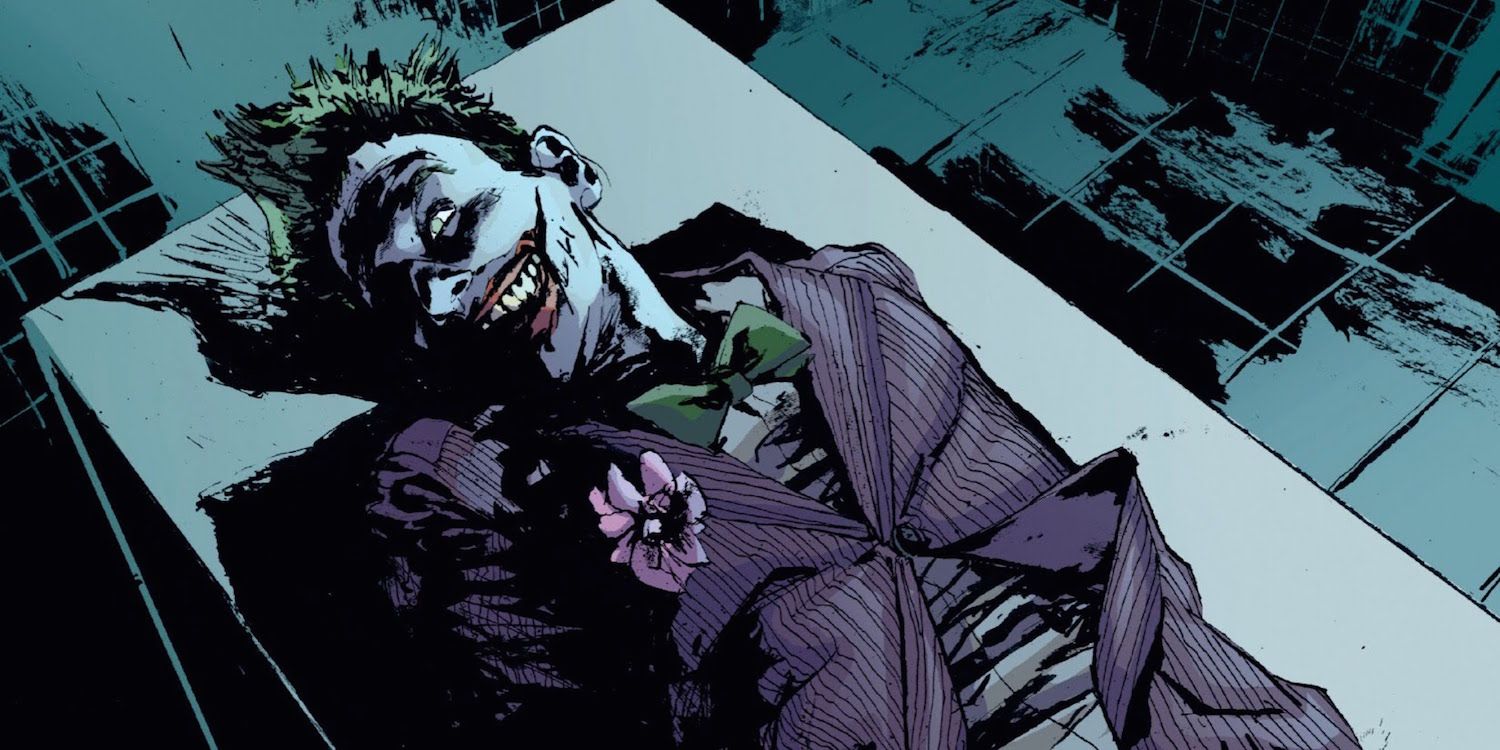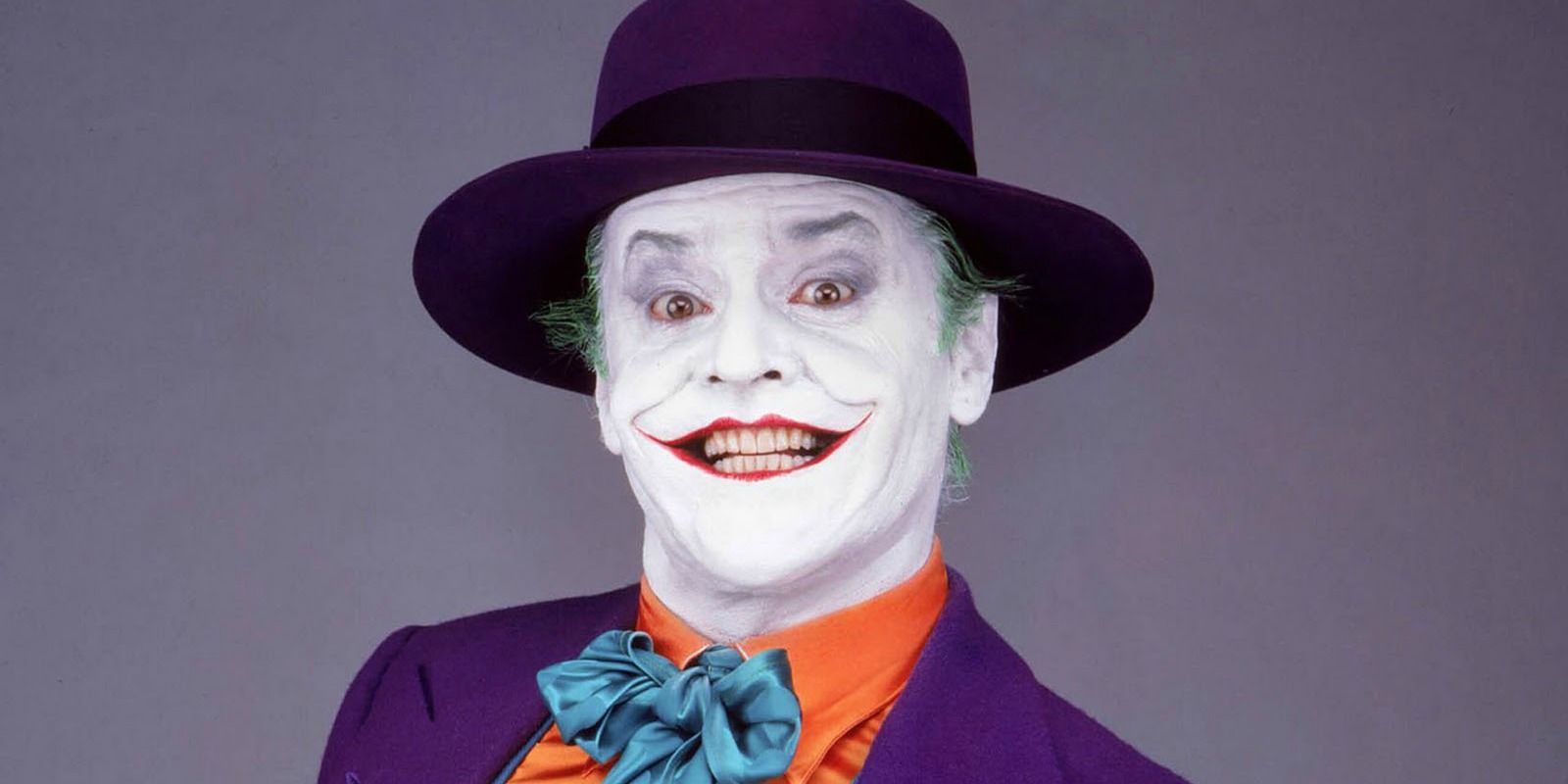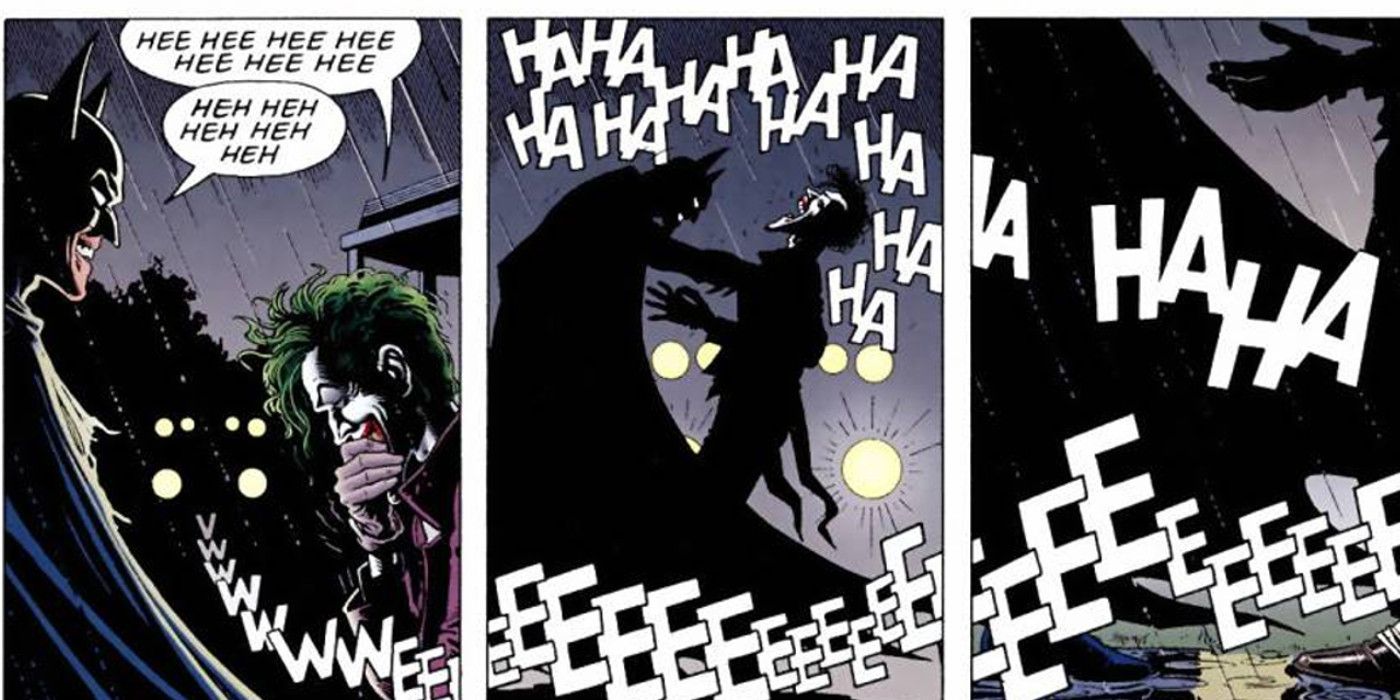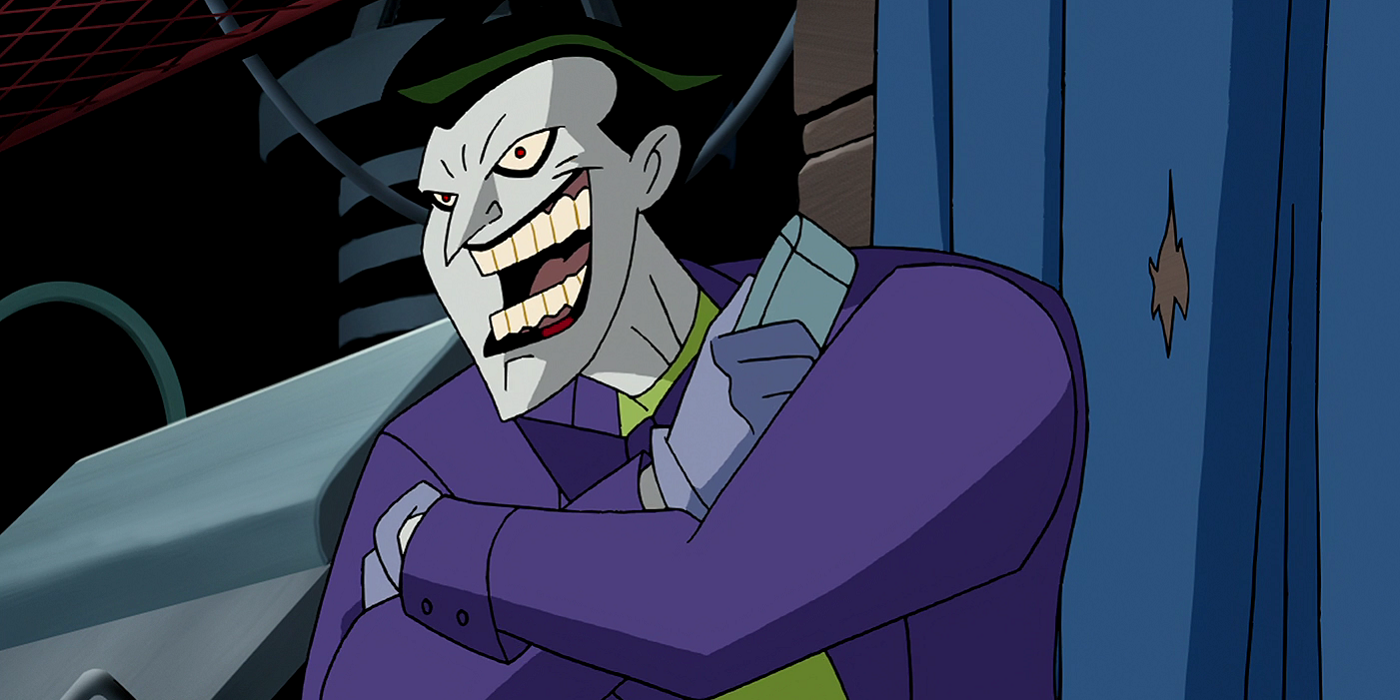Batman and the Joker have been archenemies for decades. They're arguably the best-known hero-villain combo in popular culture. Largely considered a perfect antithesis for the Caped Crusader, the Joker is a psychopath and a murderer, a pure anarchist who would burn down a city for one good laugh.
It’s hard to find too many things that make sense about a supervillain who thrives on absurdity, but the Joker wouldn’t be as beloved a character if there weren’t sides to him with which audiences could identify. While Batman may represent justice, he’s far from perfect, and at certain times his personality, logic, or moral compass just aren’t as appealing as the Joker’s.
Batman is an avatar of order and control, sometimes straying into authoritarianism and even corruption. The Joker, meanwhile, is an avatar of chaos and madness, and over the years there have been more than a few times when his school of thought just made more sense than Batman’s.
Without further ado, let’s count down the times the Joker tempted you to dance with the Devil in the pale moonlight. Here are 16 Times The Joker Made More Sense Than Batman.
He says Batman is just the lesser of two evils
The ongoing Elseworlds storyline White Knight has taken Batman and the Joker into unfamiliar territory. In this alternate universe, Batman is a villain, and the Joker has to save Gotham from him. What’s interesting about this story is that these versions of Batman and the Joker aren’t all that different from their normal portrayals: Batman is still a crime-fighter and the Joker is still a criminal.
After a standard chase in which Batman endangers the lives of several innocent bystanders in his pursuit of the Joker, the Joker gives a speech that declares to Gotham that the Bat was always the lesser of two evils.
The citizens of Gotham chose him because the alternative was anarchy.
Batman responds by beating the Joker and force-feeding him pills, and after nearly dying, the Joker embarks on a 100% legal campaign to end the Bat’s totalitarian reign of terror.
Batman can’t give up this life, but the Joker can
The 1994 story Going Sane begins with the Joker seemingly killing Batman once and for all. Naturally, the Caped Crusader isn’t really dead, as it is revealed a doctor found him and treated his wounds. During his convalescence, Bruce considers giving up his superhero mantle, but rejects the idea based primarily on his fear of what the Joker is getting up to in Gotham.
Then he finds the former supervillain living a normal, happy life with a normal, happy woman.
See, the Joker has deluded himself into amnesia, forgetting his homicidal past, having had no reason to continue his crimes since he believed Batman to be dead. It is Batman’s reappearance that prompts the Joker to have a mental break and return to his old persona, proving that if Batman didn’t exist, the Joker could leave it all behind.
He knows Batman is his soulmate
A lot of the Joker’s most famous storylines involve him proclaiming his intense attachment to Batman. “You complete me,” he says to Bats in The Dark Knight. “Don’t leave me,” he shouts in video games when the hero dies. It’s a topic he loves to bring up at a climactic showdown with Batman, and it’s a reality the World’s Greatest Detective refuses to acknowledge.
Because the truth is, they are soulmates.
The Joker is Batman’s perfect antagonist, his opposite in every way. It’s the reason their relationship has been explored by so many writers and consumed by so many fans. At this point, Batman rejecting the idea is just denial, plain and simple. The Joker has always been willing to assert painful truths (partially because it amuses him to see Batman in pain), but this is one truth Batman can’t bring himself to accept.
He doesn’t dwell on his painful memories
Batman, as a superhero, is defined by his traumatic memories. The death of Bruce Wayne’s parents at the hands of a mugger is so ingrained in pop culture that it might as well be carved in stone. Everyone even mildly familiar with superhero media knows Batman’s origin story like the back of their hand.
On the other hand, the Joker’s origin has always been murky. Whether it was a factory accident or a mob hit or Batman himself, there is no consistent, agreed-upon tale that explains how the Joker became this way. The Joker himself doesn’t care— in a scene from the 2013 video game Arkham Origins (and inspired by The Killing Joke), Joker rebels against the very idea of having to deal with painful memories, something that anyone can relate to.
Rather than constantly torture himself like Batman, the Joker chooses to let his old memories go.
He accepts the end of life
Everyone dies. It’s a fundamental reality of the world, and yet Batman can’t seem to accept that. Perhaps in response to his parents’ death, Batman can never quite face up to death. This attitude might make sense in a comic book world with magic that can revive people, but for those of us in the real world, the only real option is to enjoy life while we can, and accept death when it comes.
The Joker, meanwhile, is obviously here for nothing more than a good time. His “good time” tends to be horrible for others, but his worldview comes from a deep acceptance of the way life is.
While Batman scowls and broods, the Joker laughs at death.
In Tim Burton’s Batman, he says “if you gotta go, go with a smile,” and nearly every time he dies in the comics, films, or other media, he does just that.
He's scared of the IRS
Do you think Batman has ever worried about taxes? No, really, think about it: imagine Bruce Wayne sparing a moment, even a fleeting second to worry about his taxes. It’s ridiculous, right? There’s no way he would ever be concerned about his taxes. He has people who do that for him, legions of Wayne Enterprises accountants who tackle that problem every year.
This is, frankly, not the most relatable side of Batman.
To a viewer watching The New Batman Adventures, hearing the Joker say “I’m crazy enough to take on Batman, but the IRS? Nooo, thank you!” felt like a breath of fresh air. For a brief instant, viewers identified with the Joker in his fear of dealing with taxes. More than a few probably thought that, if they had to choose between doing their taxes and a life of crime, they might pick the latter.
He doesn’t work for free
The Joker is a lot of things, but one of his defining characteristics (at least in The Dark Knight) is his practicality. He offers a service to the organized crime bosses of Gotham, and he knows it’s a service no one else can deliver: to kill the Batman. He knows there’s a lucrative market for his services, so he says to the bosses: “If you’re good at something, never do it for free.”
Batman never makes these kinds of observations, because money isn’t an issue for him. The Joker doesn’t have an enormous family fortune to fund his nightly pursuits, unlike Bruce Wayne. The Joker knows he deserves to be paid for his services; something anyone not born with a tremendous amount of money might relate to. Not everyone has billions to spend on their hobbies, Bruce!
He finds sanity unpleasant
In Legends of the Dark Knight #145, the Joker dies and Batman takes his corpse to the Lazarus Pits, which have the capacity to revivify any mortal. Everyone who emerges from the pit acts oddly for a little while, and for the Joker, this manifests as a brief moment of sanity.
This may sound like a gift, but consider how you would feel if you had committed horrific crimes and suddenly had to face them with a perfectly clear moral compass. If you had done the things the Joker has done, sanity would do nothing but cripple you.
When the Joker views his past with a clear, sane eye, he says simply, “Sanity is such a burden.”
This quote resonates with anyone who has made horrible mistakes, and has to contend with the guilt afterwards.
He believes in "One Bad Day"
Another recurring theme for the Joker is his insistence that normal, everyday people are closer to madness than you think. He makes this point in many of his appearances, but it might be a famous quote from The Killing Joke that says it best: “all it takes is one bad day.”
The Joker is ultimately proven wrong in this belief of his. Not everyone can be driven mad. But some people can be, and his point is a salient one: sometimes all it takes is one day.
Consider how much Bruce Wayne’s life changed the day his parents died.
He could have easily spiraled into madness, just like the Joker. Trauma like that can affect anyone’s mental health. Those of us who have seen someone fall apart from something comparatively insignificant know that humans are fragile, and while one push isn’t usually enough to break a person, sometimes it can be.
His bodycount in Suicide Squad is lower than Batman's in Batman v Superman
The Joker wasn’t much of a player in the final cut of David Ayers’ Suicide Squad, but that actually ends up being to his advantage for the purposes of this list. See, while his gang may shoot a lot of prison guards, Joker himself kills very few people. And while Batman supposedly has one ultimate rule for never killing anyone, criminal or otherwise, he sure kills a lot of criminals in Zack Snyder’s Batman v Superman.
It was a puzzling moment for Batfans to see Batfleck crush, blow up, and run over criminals in Batman v Superman. Most incarnations of Batman avoid killing anyone, but apparently the DC Cinematic Universe didn’t think that was right for the character.
While he never, say, deliberately snaps somebody’s neck (like a certain Man of Steel), it sure was odd to see Batman rack up a higher body count than the Joker.
He attacks Gotham’s corrupt elite
There’s a scene in Christopher Nolan’s classic film The Dark Knight where Bruce Wayne sits down at Harvey Dent’s table in a restaurant (uninvited) and after some forgettable dialogue (something about living long enough to see yourself become a hero, we think?) offers him money from his corporate buddies.
What’s interesting here is that this is the moment corporate money begins to control Gotham politics, a largely decried aspect of the American political system. Bruce Wayne, our hero, seems to have no compunction about using his vast sums of money to influence Gotham’s leadership— the Joker, meanwhile, attacks the corrupt members of Gotham’s elite.
Bruce’s methods may be more polite, but the direct, violent approach taken by the Joker might appeal to those dissatisfied with the political process.
He knows money doesn’t matter
The Joker may need money to fund his crime sprees, but as he says in The Dark Knight, it doesn’t cost that much to buy explosives and other weapons. Once he has enough to go around, the Joker isn’t interested in money.
Meanwhile, Batman is nearly always depicted as a man of means.
Very few writers even bother to explore what he would be like if he didn’t have a mountain of ready cash at his disposal. Batman may be a hero, but he’s selfish enough to keep his money to himself so he can continue to fund his brand of vigilante justice.
The Joker, meanwhile, is seen burning and giving away cash in huge amounts across various storylines, because he knows money doesn’t matter when it comes to heroism or villainy. You can be a good guy or a bad guy without money, and the Joker understands that.
He tells Batman to take him out
The most enduring point of conflict in Batman and the Joker’s storied relationship has always been the Joker trying to goad Batman into killing him. In most stories, this is seen as the final victory in Joker’s eyes, coaxing the stoic hero into breaking his one rule. This would be Batman giving in to authoritarianism, wiping out the purest anarchist in the comic book world.
There’s also a legitimate point to the Joker telling Batman to do this: with the Joker dead, the citizens of Gotham would be markedly safer. In terms of net outcome, Batman killing the Joker would save lives, and quite a few at that.
Anyone who has grown tired of Batman’s endless struggle with his arch-nemesis would agree— since Joker escapes from whatever prison he’s thrown into, and (virtually) never changes his ways, it makes more sense from a utilitarian standpoint to end him.
He knows nobody can out-crazy him
This famous scene in Tim Burton’s 1989 Batman may be better known for Joker’s other major quote (“Ever danced with the Devil in the pale moonlight?”), but the real wisdom comes later. Wayne attempts to intimidate the Joker by waving a poker around, shouting “Let’s get nuts!” To the Joker, of course, this is simply laughable.
Can you imagine some billionaire playboy thinking he could out-crazy the Joker?
Naturally, the Joker isn’t scared in the slightest, and after shooting Bruce Wayne, he says “never rub another man’s rhubarb.” On the surface, this remark rebukes Bruce for muscling in on Vicki Vale, whom the Joker fancies. But it works better to remind Bruce that it is useless to act crazy around the Joker—there is no amount of madness that scares the Clown Prince of Crime. It’s a miscalculation on the part of Batman, who’s lucky to escape with his life.
He embraces the madness of the world
The Killing Joke was an instant classic in the Batman canon, largely because it articulated the Joker’s worldview in a painfully honest, philosophical manner. In a signature monologue from the tale, the Joker says that what drove him off the deep end was simply realizing what a terrible joke the entire world was.
The meaninglessness of the world and the people who live on it is what makes the Joker laugh; it’s the titular killing joke for him. His many speeches, coupled with his horrendous actions, actually wear down Batman over the course of the story.
The comic ends with Batman joining in, laughing at a joke about a crazy inmate.
The Joker adheres to an extremely cynical brand of nihilism, taking an absurdist view on mankind’s suffering. It’s hard to make a viewpoint like that resonate with viewers, but The Killing Joke succeeded, if only for a moment.
He enjoys the show
Perhaps the one thing that sets the Joker apart as a villain, what makes him one of the most iconic and popular of all time, is the fact that unlike many comic book characters, he always seems to be having fun. This is actually a very important part of his appeal, as it links him inextricably to his audience. Whether it’s as comic book readers or as moviegoers, the masses flock to see Batman fight the Joker because it’s fun to watch, and the Joker gets that.
The Joker is a showman, and he enjoys his work. After watching Batman scowl his way through a storyline, it’s nice to see a character enjoy himself. The Clown Prince of Crime may be a murderer, but his mood during his fights with Bats is closer to what the audience is feeling than the Bruce's, and that’s why we watch him.
---
What other times has Joker seemed more reasonable than Batman? Share your thoughts in the comics.

